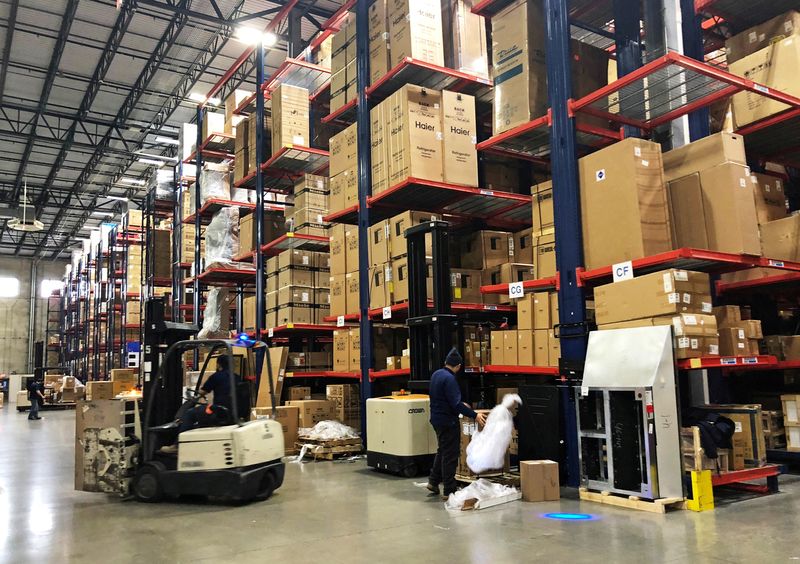Revisions confirm steep decline in U.S. productivity in second quarter
2022.09.01 16:17

FILE PHOTO: Warehouse workers deal with inventory stacked up to the ceiling at an ABT Electronics Facility in Glenview, Illinois, U.S. December 4, 2018. Picture taken December 4, 2018. REUTERS/Richa Naidu/File Photo
WASHINGTON (Reuters) – U.S. worker productivity plunged in the second quarter, leading to the largest year-on-year decline on record, the government confirmed on Thursday, keeping upward pressure on labor costs.
Nonfarm productivity, which measures hourly output per worker, contracted at a 4.1% annualized rate last quarter, the Labor Department said. That was revised up from the previously reported 4.6% pace of contraction reported last month. Productivity tumbled at a 7.4% rate in the first quarter.
Economists polled by Reuters had expected that pace of decline in productivity would be revised to 4.5%.
Productivity fell at 2.4% rate from a year ago, instead of the 2.5% pace estimated last month. It was still the biggest year-on-year decline since the government started tracking the series in the first quarter of 1948.
The decline in productivity, against the backdrop of fairly strong job growth, is likely unsustainable. That has made economists expect that hiring will slow down in the coming months. Job growth averaged about 461,300 per month in the first half of the year and has outperformed the overall economy.
Hours worked increased at a 2.7% rate in the second quarter, revised up from the previously reported 2.6% pace.
Unit labor costs – the price of labor per single unit of output – shot up at a 10.2% rate, rather than 10.8% as previously estimated. They increased at a 12.7% pace in the January-March quarter. Unit labor costs increased at a 9.3% rate from a year ago, instead of the 9.5% rate reported last month.
A tight labor marker is boosting wage growth. There were 11.2 million job openings at the end of July, with two openings for every unemployed worker.
Hourly compensation rose at an unrevised 5.7% pace. Compensation increased at an unrevised 6.7% rate compared to the second quarter of 2021.








